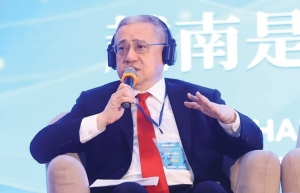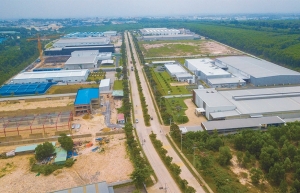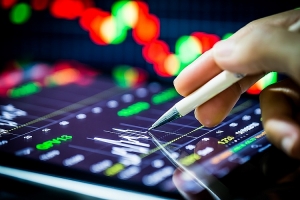Investors from Taiwan keen on diversification
Taiwan-based Acer, the world’s fifth-biggest PC vendor by market size, has been watching other players in the Taiwanese tech-hardware supply chain move some of their production to other markets, COO Jerry Kao said on the sidelines of the Computex Taipei 2024 tech show in early June.
“The supply chain is moving out of Taiwan already,” Kao said at the event, as reported by South China Morning Post (SCMP). “As long as we see some risk, we will start to diversify. They’re going to Vietnam or Thailand or somewhere else. We follow the trend.”
 |
| Investors from Taiwan keen on diversification - illustration photo/ Source: Shutterstock |
Acer – with over 7,700 employees – has joined other major Taiwanese tech developers by embracing what analysts have seen as a shift over the past few years towards South and Southeast Asia, rather than opting to expand at home or in mainland China.
“In terms of computer and notebook production, Vietnam and Thailand are the two most favourable markets right now, for their lower labour costs, improving infrastructure and growing domestic market,” said Sanesha Huang, an analyst with the Taipei-based market research firm TrendForce.
Taiwanese businesses have recognised Vietnam as a crucial link in their supply chain shift to Southeast Asia, said CY Huang, founder of the Southeast-Asia Impact Alliance.
Cultural similarities, a young population, significant investor presence, and industrial diversity were key factors driving their decision, Huang said at the Vietnam-Taiwan Business Forum in April. “Some fields as appealing to Taiwanese investors include high-tech manufacturing, traditional manufacturing, and consumer services. Taiwanese capital can assist Vietnam in accelerating its industrialisation and modernisation process,” Huang highlighted.
Lawyer Nguyen Hong Chung, vice chairman and general secretary of the Vietnam Industrial Park Finance Association, said that Taiwan’s investment in Vietnam over the past 35 years has had a qualitative change from labour-intensive industries such as textiles, garments, leather shoes, and wooden furniture to high-tech electronics industries.
Currently, Taiwanese electronics corporations such as Foxconn, Wistron, Qisda, Pegatron, Compal, and Quanta have come to Vietnam to establish factories or expand production capacity. In the future, more Taiwanese entrepreneurs and businesses will plan to establish factories in Vietnam.
“Taiwan has the world’s leading semiconductor industry while Vietnam also aims to develop this, and participate in the regional and global technology supply chain. Therefore, the opportunity for cooperation between the two sides in this field is extremely huge,” Chung emphasised.
Sysgration, a 47-year-old Taiwanese designer of automotive electronics systems, is studying how to get set up in Vietnam, according to senior product manager Tony Wang. He told SCMP that the company, with more than 600 workers, already operates two mainland China plants plus a US factory.
“If clients want it made in mainland China, we can do so, and if they want it made in the United States, we can do that,” Wang said, noting that the China-Vietnam border would offer a “geography dividend” for shipments.
Taiwan’s tech sector faces global political shifts that have arisen since a trade conflict between China and the US kicked off in 2018. US laws now ban Taiwanese firms that sell sensitive parts to American customers from doing the same in mainland China. At the same time, Taiwanese tech giants have diversified production away elsewhere to hedge against any conflict with mainland China that would make those parts difficult to access for overseas customers.
According to the Ministry of Planning and Investment, Taiwan’s investment in Vietnam in the first five months of the year was about $961 million, an increase of 23 per cent on-year. Taiwan ranks sixth among 78 markets investing in Vietnam, much improved from previous years.
 | Vietnam can emulate Taiwanese high-tech success Vietnam is considered an attractive investment destination for Taiwanese investors. CY Huang, chairman of the Southeast Asia Impact Alliance, spoke with VIR’s Kim Oanh about the investment prospective of Taiwanese investors and the proposals to more effectively lure this investment capital inflow. |
 | Industrial parks within Vietnam keen on Taiwanese investment Industrial parks in Vietnam are moving to pick up a surge of Taiwanese investment. |
 | Vietnam remains an attractive investment for Taiwanese firms SSI Asset Management (SSIAM) and Union Securities Investment Trust Company (USITC), a subsidiary of Union Bank of Taiwan (UBOT), have agreed to establish a cooperative relationship that covers customer development, investment funds, and the sharing of investment opportunities, and more. |
What the stars mean:
★ Poor ★ ★ Promising ★★★ Good ★★★★ Very good ★★★★★ Exceptional
Related Contents
Latest News
More News
- Internal strengths attest to commitment to progress (February 19, 2026 | 20:13)
- Vietnam, New Zealand seek level-up in ties (February 19, 2026 | 18:06)
- Untapped potential in relations with Indonesia (February 19, 2026 | 17:56)
- German strengths match Vietnamese aspirations (February 19, 2026 | 17:40)
- Kim Long Motor and AOJ Suzhou enter strategic partnership (February 16, 2026 | 13:27)
- Haiphong welcomes long-term Euro investment (February 16, 2026 | 11:31)
- VIFC in Ho Chi Minh City officially launches (February 12, 2026 | 09:00)
- Norfund invests $4 million in Vietnam plastics recycling (February 11, 2026 | 11:51)
- Marico buys 75 per cent of Vietnam skincare startup Skinetiq (February 10, 2026 | 14:44)
- SCIC general director meets with Oman Investment Authority (February 10, 2026 | 14:14)

 Tag:
Tag:
















 Mobile Version
Mobile Version